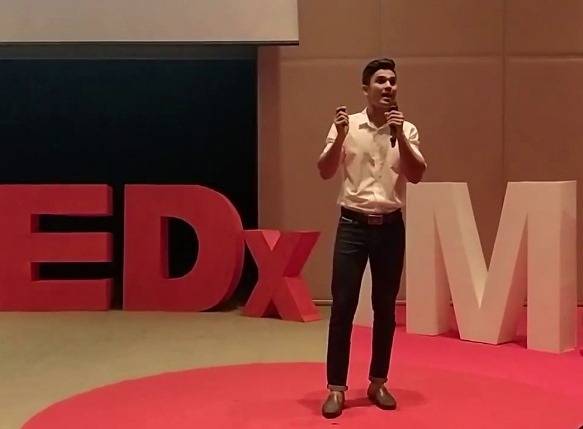Refugee calls for better support to improve integration
Rohingya refugee and social media influencer Rahman Iman Hussein said while he and his family have been assimilating into the Malaysian culture, the process has been challenging.

SHAH ALAM - "I wish there were guidelines on cultural, legal and religious norms to help refugees adapt better," says a Rohingya refugee and social media influencer.
Prince (not his real name), 29, born in a rural home in Penang said that while he and his family have been assimilating into the Malaysian culture, the process has been challenging.
"This is due to the mixture of cultures where back in Myanmar, people were different over there.
"They were isolated in their villages, restricted from being able to move from one village to another and stripped off of their basic rights for education, healthcare, among others where the new environment in Malaysia makes everything foreign to us," he said.
Shedding light on how refugees usually sought refuge in not just Malaysia, but also in India, Pakistan and Thailand, he said all refugees were with the basic understanding that they needed to bring a positive impact to host countries.
However, he regretted that some refugees, who were experiencing culture shock, did not always behave well.
This, he said was made worse by the negative treatment they received from the host country, including from stereotypes and bullies.
"I apologise from the bottom of my heart for some parts of our community who are not so grateful but I promise to work on a refugee community that always remembers the goodness and good deeds that the host country has done for us," he said.
He said citizenship in Malaysia would be impossible for refugees since, formality-wise, they did not have documents from their country of origin to prove citizenship, while Malaysia was also not a signatory to the United Nations (UN) Convention, where it does not recognise refugees or the neutralisation of refugees in Malaysia.
"We are considered stateless and undocumented by the Malaysian government, although recognised by the UNHCR (United Nations High Commissioner for Refugees).
"I will have to stay here for only a short period of time and will be moving to the United States (US) in the near future," he said.
He said many Malaysians have the misconception that refugees will stay in Malaysia forever.
However, he said refugees will eventually return to their home country once it becomes more peaceful and free from terrible things like genocide and the loss of basic rights.
Another option, he said was that refugees will be sent to third countries such as the US under the third country migration programme under UNHCR, where most of them would be put on the waiting list.
Expressing his dissatisfaction with the refugee process in Malaysia, he said he wished that there was a comprehensive guideline for all the Rohingyas, or any refugees who came to Malaysia to learn about the Malaysian culture and the do's and don'ts, through cultural, religious and legal orientation.
"There is a need for basic language training to teach essential communication skills, as we often face hostility for not having the same level of understanding.
"This is especially true for those still struggling to overcome their traumatic past, having faced genocide and stripped off of their basic rights for decades.
"Civilisation seemed unattainable and refugees were mostly in survival mode," he said.
He said refugees should take the initiative to improve their behavior and be more mindful of their actions to avoid worsening racism and prejudice in the local community.
"I'm glad my parents learnt to adapt to the Malaysian culture early, that would be considered as one in a few hundred in the refugee community," he said.
Prince said taking this step was important to break the cycle of generational poverty and other long-standing issues.
However, he said to be fair, the majority of refugees who came to Malaysia were not given basic guidance on what to do and what not to do.
"Regardless, I still love Malaysia as my host country. I will never forget what Malaysia has done for me, my community, especially my family.
"No matter how much some parts of the Malaysian society might not like us, I will always be grateful for some of the things that they have done for me and I will never forget this experience for the rest of my life.
"I will always promote, support, be proud of and advocate for everything about Malaysia," he said.
Prince started creating social media content professionally about eight months ago, where his content could be mostly seen on his TikTok account @itsprince7_ which has over 50,000 followers and over 14,200 followers on his Instagram page @itsprince7_.
On his social media platforms, he shared about his life as a refugee, which he claimed was a way to inspire other refugees and received support from the refugee community, particularly the Rohingyas through social media.
He also collaborated with Malaysian public figures from time to time.
He also attended TED talks back in 2018 to speak about refugees.
His speech entitled "The Invisible Among Us by The Refugee Prince" can be viewed on YouTube's TEDxIMU account.











